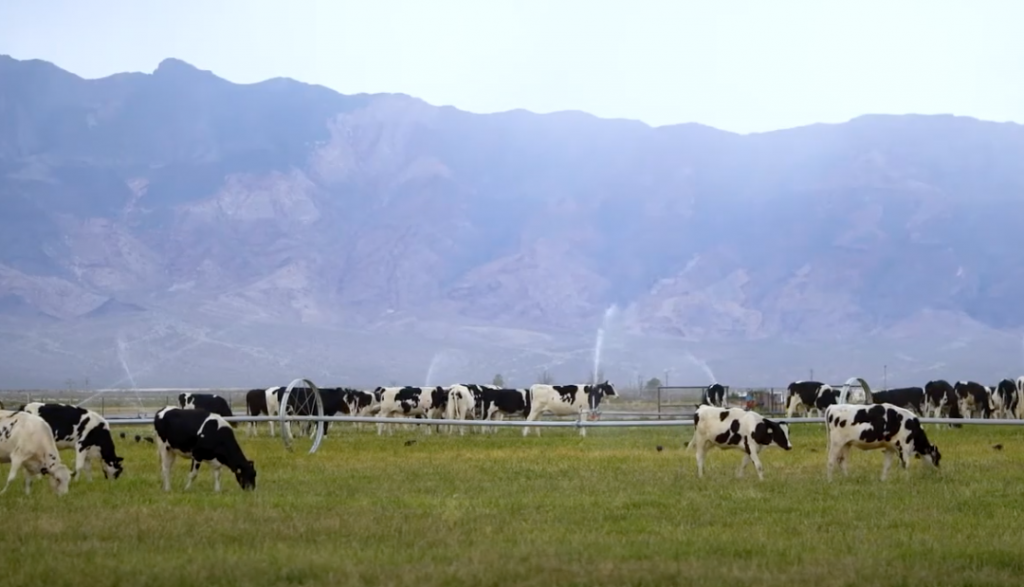Our dairy farmers not only care for their cows and produce nutritious, quality products, but they are also vigilant stewards of the land. They are continually looking for opportunities and refining processes to reuse and recycle resources on the farm to reduce their environmental footprint.
“Farming, really in its nature, is sustainable in and of itself. We take products no other industry (or humans) can use and we turn them into milk. We take crops from the field, feed them to the cows who then produce manure which we put back onto the fields,” said Ted Christoph of Liberty Jersey Farm Inc. “There’s really this circle that goes around.”
There is a lot of science that goes into sustainable practices on the farm. Here are some of the main areas our farmers focus on.
Food and Nutrition
Cows have ruminant digestive systems which allow them to eat what humans cannot. In addition to hay, cow food consists of by-products like almond hulls and cotton seed. Instead of throwing this away, it’s sold to dairy farmers to mix with other ingredients to make feed. Our farmers here use some alfalfa that they grow, feeder corn, by-products, and they produce their own silage.
When it comes to dietary management of dairy cattle herds, our dairy farmers have on-site nutritionists who develop the feed ratios, monitor the condition of the cows, and ensure the overall health of the herd. Nutritionists work with both the farmer and the veterinarian to create different types of diets for cows in different life stages, from calves to dry cows.
Water Reuse
Water is such a precious resource, especially in Nevada, and cows drink a lot of water. Not only is water used to keep the cows hydrated, but it’s also used for a lot of other processes on the farm from cooling the milk to misting the cows and cleaning the barns to irrigating the crops. Our farmers reclaim and reuse water 3-4 times on their farm.
Manure for Fertilizer
Cow manure is a great fertilizer and is extremely valuable. There are a lot of nutrients in cow manure that are beneficial for the soil and crops. Many of our farmers grow alfalfa or other products which they use to feed their cows. By recycling manure as natural fertilizer they reduce the need for commercial chemical fertilizers, both saving costs and reducing chemical use.
Methane Digester
While many of our farmers use manure to fertilize their fields, another option is to turn it into energy. In southern Nevada, one of our farmers is in the process of installing a methane digester to do just this. How does this work? Micro-organisms break down organic materials like cow manure in a process called anaerobic digestion. This happens in an oxygen-less, closed tank called a digester. This breakdown creates biogas, which can be sued for electricity, heath, natural gas, and even vehicle fuel. These can then be used to power other processes on the farm. In addition, digesters can also be used to create fertilizers, compost and even comfortable cow bedding.
On the Horizon
Our dairy farmers are already making great strides in reducing the carbon footprint on their farms, and the dairy community nationwide is working together to further reduce greenhouse gas emissions by 25 percent in 2020 (the equivalent of taking 1.25 millions passenger cars off the road each year).
As our farmers work to bring you a nutritious, low-cost product, they continue to provide the utmost quality care of their cows and the land. There’s no denying that sustainability, both here in Nevada and across the agricultural landscape nationwide, will continue to be a focus. Our farmers are committed to practices that keep their products safe, foster a healthy environment, and improve our communities.
Learn more about local dairy, ask an expert, and join the conversation.



